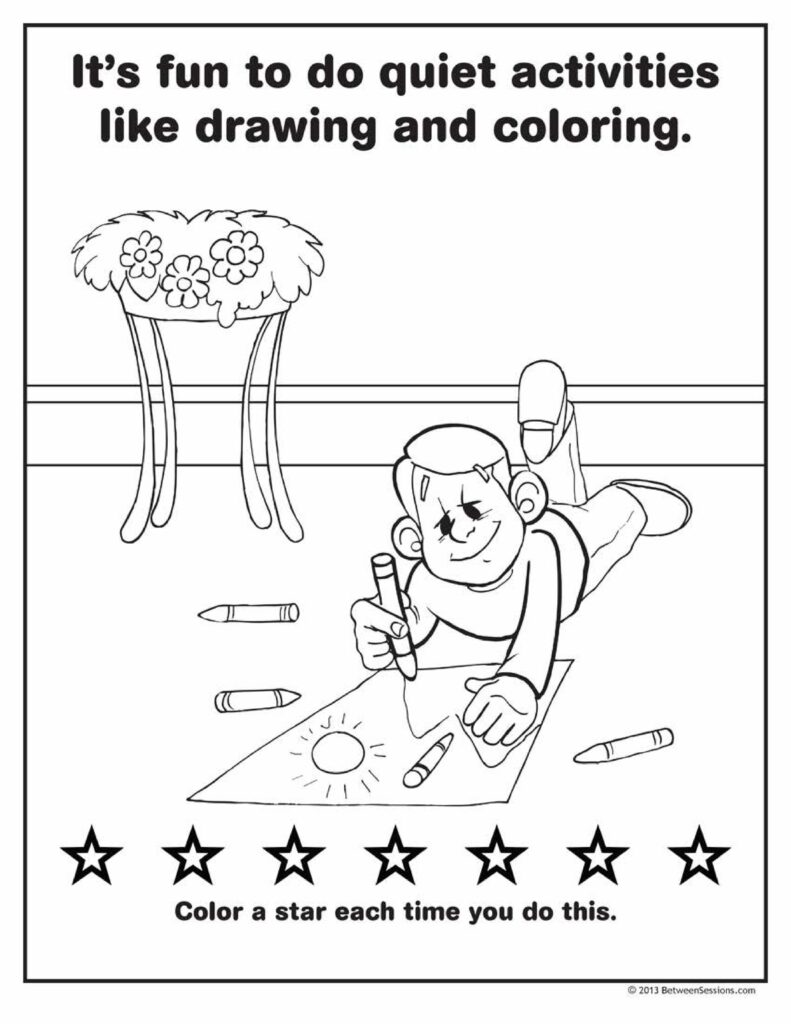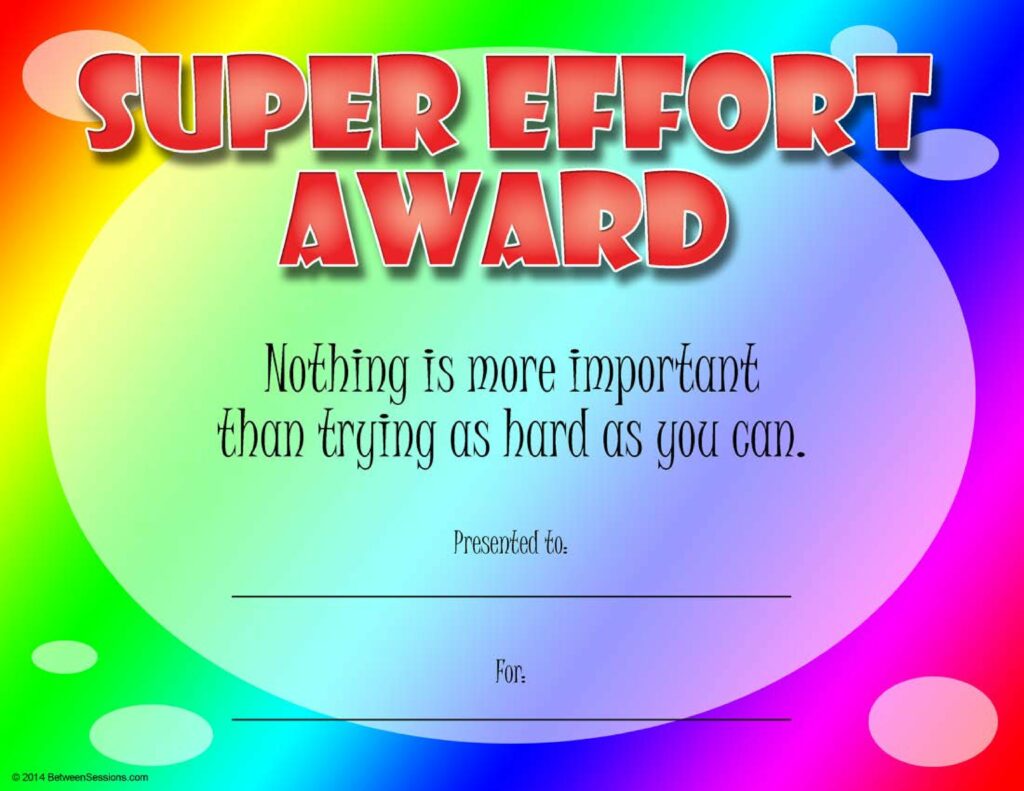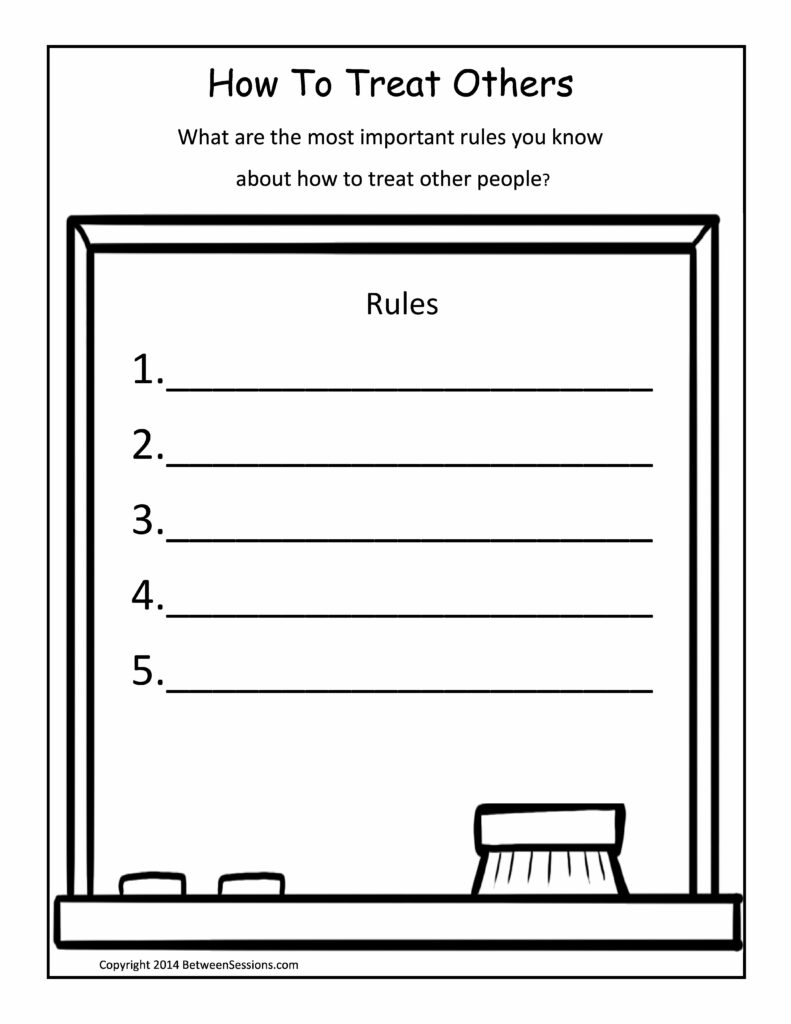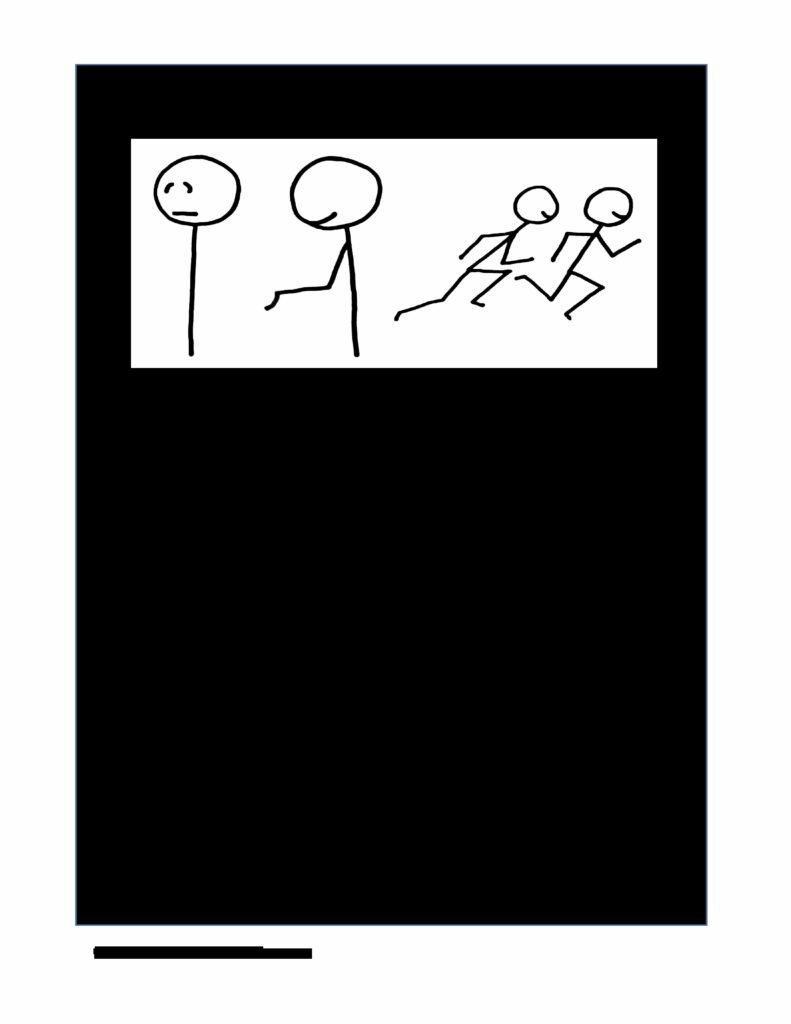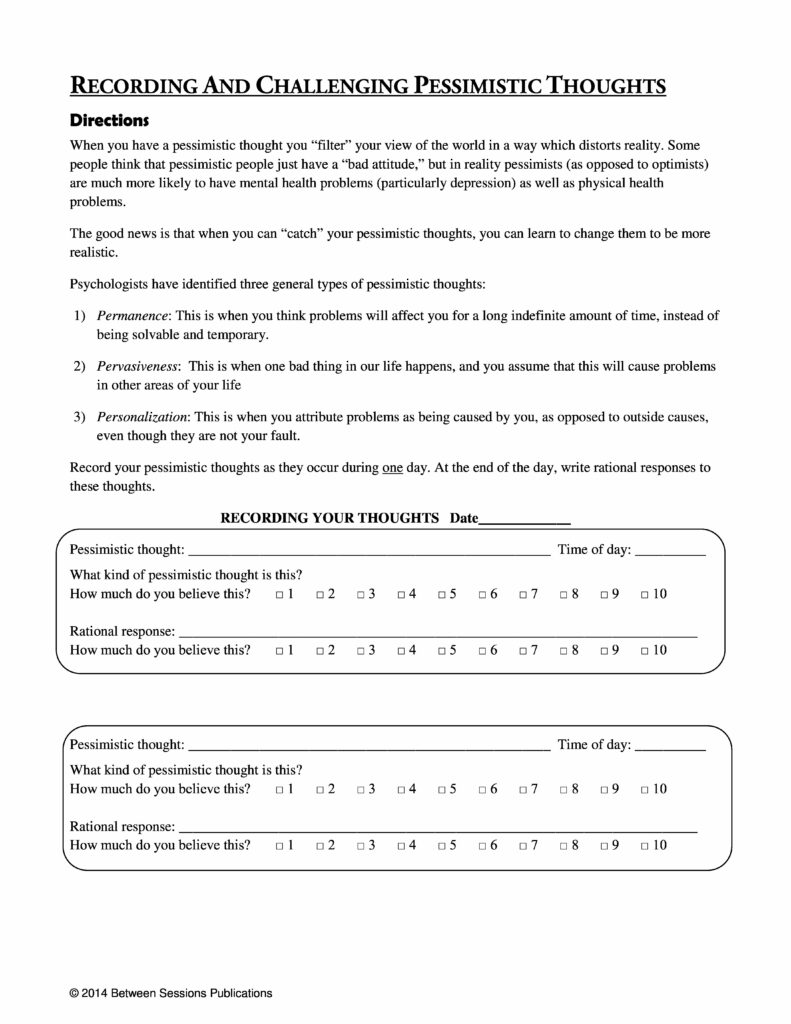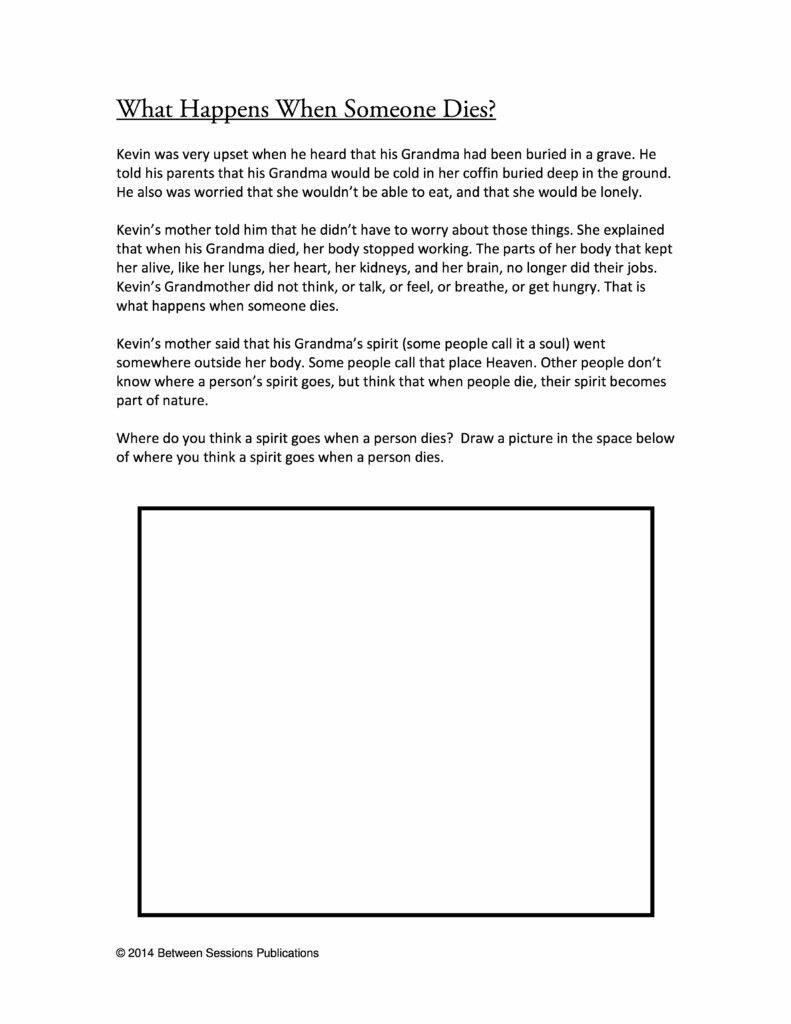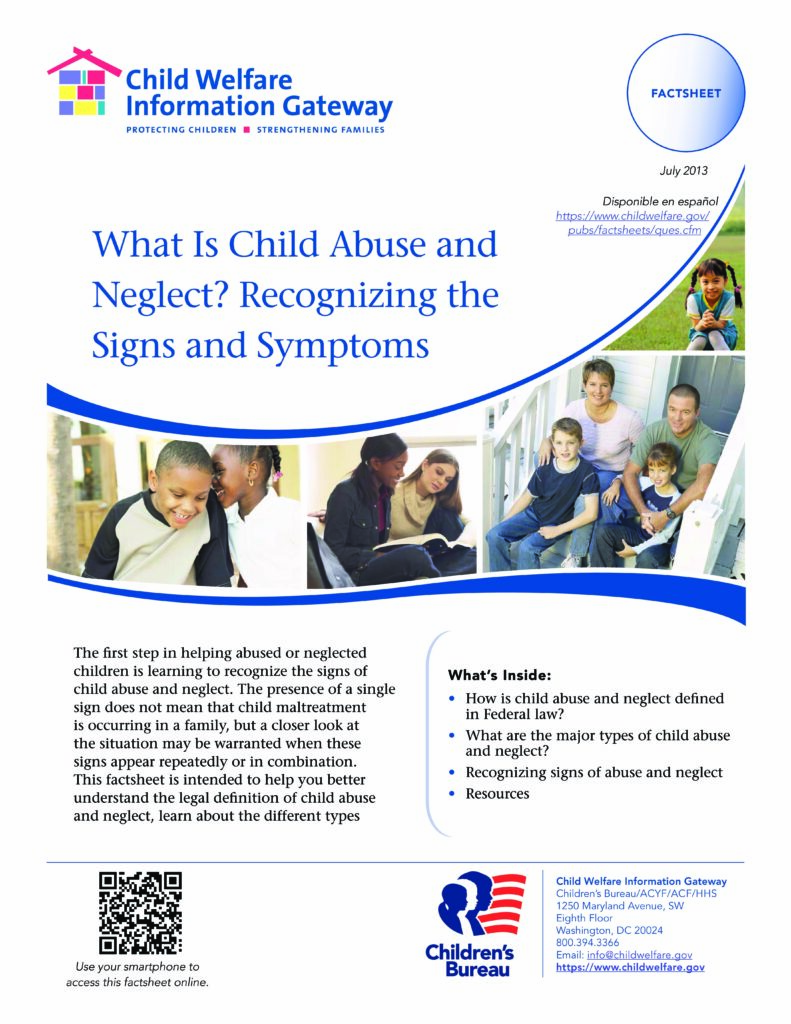Children learn best through play and we’ve kept this in mind while designing these original therapeutic activities for children, including worksheets, stories, and therapy games. Print these tools out for use in the home or classroom or use them in a counseling session.
Use the navigation links on the left of this page to view tools in a specific category. Or use the search function at the top of this page to find the exact tool you are looking for.
If you are looking for something you can’t find on this site, please let us know by clicking here and our team of writers, graphic artists, and therapists will custom design it for you.
Use this certificate to reward children for making a great effort on their school work or when working on behavioral goals. Form Type: PDF
Use this certificate to reward children for good behavior. Works great with random acts of kindness programs. Form Type: PDF
This worksheet can be used to help children learn important rules about how to treat others. Form Type: PDF
This form can be used with children whose parents are divorcing to help them express their needs. Copies can be given to both parents, or it can be used as an exercise in individual or group counseling.PDF
This worksheet for young children asks them to think about how children tease each other and what you should when children are teased. Useful for individual counseling or group discussion.
This worksheet explains what a student should do if they are late to class. (Form Type: PDF)
This worksheet can be used to help people understand how pessimistic thinking is affecting their mental health. It is designed to record and change faulty thinking in a single day. PDF
This worksheet will help children talk about their concerns about what happens when someone dies. Keep in mind that talking about death is an ongoing discussion, and make sure they know that they can ask questions and talk about their feelings at any time.
This fact sheet was developed by the Child Welfare Gateway and should be given to anyone who works with children. It defines the various types of child abuse and neglect according to Federal guidelines, and can be helpful in detecting signs of abuse or neglect.

